Good morning!
Greetings in the name of the Father, the son, and the Holy Spirit.
Oh, how great are God’s riches and wisdom and knowledge! How impossible it is for us to understand his decisions and his ways! – Romans 11:33
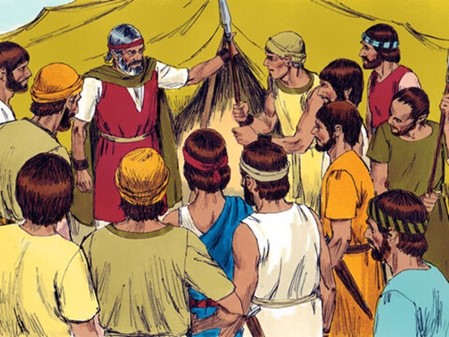
Imagine for a moment standing on the edge of a vast desert, the scorching sun beating down on you, the wind carrying with it fine grains of sand that sting as they hit your face. Now, imagine that you are not alone. Instead, you are surrounded by a throng of people – thousands of them, each looking up to you for guidance, for decisions, for resolution of their disputes. From morning till evening, they line up waiting for you to dispense justice, to provide answers, to be their guide.
This is where we find Moses in today’s scripture passage, from Exodus 18:13-27. A leader, chosen by God, burdened under the weight of his immense responsibility. An image of resilience and dedication, yet a poignant reminder of human limitations.
And into this image steps Jethro, Moses’ father-in-law. A man from the outside who steps into the picture with an insight that would change Moses’ approach to leadership and create a lasting impact on God’s people.
As we delve deeper into this extraordinary narrative, we will uncover the limitless wisdom of God contrasted against our prominent human leader’s limitations, the conduit of God’s wisdom and the humility necessary to receive it, the urgency of immediate implementation, and ultimately, we will join together in offering praise to God for His unfailing loving guidance.
Let us then journey together through the desert, to the foot of the mountain of God, and see what wisdom He has to reveal to us today.
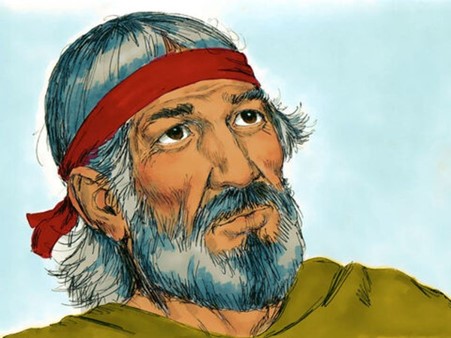
- Human Wisdom’s Limitation and God’s Inexhaustible Wisdom
As we open the pages of Exodus 18, we step into a scene both familiar and extraordinary. Moses, a man chosen by God Himself, a man who led his people out of the shackles of slavery, stood as a beacon of leadership and resolve. From morning until evening, he shouldered the tremendous responsibility of resolving every dispute among the people – a task that may seem extraordinary but was indeed daunting and overwhelming.
Now imagine the scenario – hundreds, possibly thousands, of Israelites gathering each day, waiting their turn for an audience with Moses. From minor disagreements to complex legal matters, all cases were brought before him. He was expected to provide a resolution, to deliver wisdom and justice for each unique situation. Moses dedicated himself to this task, demonstrating an unwavering commitment to his God-ordained leadership. Yet, beneath this mantle of responsibility, Moses was just a man – limited by human frailty, finite understanding, and the constraints of time.
This brings us to the heart of the matter – the wisdom of man versus the wisdom of God. The Apostle Paul paints a vivid picture in
1 Corinthians 1:25, “For the foolishness of God is wiser than human wisdom, and the weakness of God is stronger than human strength.”
This is not merely a lofty platitude or a philosophical pondering. Instead, it is a profound truth that finds life in our text from Exodus. The wisdom Moses could offer was intrinsically limited – confined by his human understanding, experiences, and biases. And even the most resilient strength he could muster would wane under the relentless demands of his duty.
In contrast, God’s wisdom is boundless, timeless, and perfect. What might seem like foolishness to us is infused with divine wisdom that is infinitely beyond our comprehension. And God’s ‘weakness,’ if one can even term it so, is more potent than the most formidable human strength.
As we delve deeper into this passage, we will see how this contrast between human wisdom and divine wisdom unfolds and brings a revolutionary change in the life of Moses and the people of Israel. Keep this in mind as we continue: our understanding, our wisdom, our strength – they are limited. But God’s are not. And it is in His wisdom and strength that we can find rest and guidance for our journey.

- The Conduit of God’s Wisdom
Indeed, God’s wisdom doesn’t always descend in a thunderous revelation from the heavens; sometimes, it comes through the advice of a wise friend or family member. In Moses’ case, this wisdom came from his father-in-law, Jethro.
Jethro, seeing the enormous burden that Moses carried, recognized the unsustainable nature of the situation. His observations and subsequent advice embody the insightful and practical wisdom that often characterizes God’s counsel. In Exodus 18:17-18, Jethro asserts, “What you are doing is not good. You and these people who come to you will only wear yourselves out.”
This straightforward statement cut through the layers of complexity surrounding Moses’ predicament. Moses’ approach, while admirable in its dedication, was fundamentally flawed. Not only was Moses heading towards exhaustion, but the people he served were also growing weary in their waiting.
Jethro’s solution was equally straightforward – a system of delegated authority. He suggested appointing trustworthy officials over groups of thousands, hundreds, fifties, and tens. These individuals would handle the routine cases, bringing only the most challenging situations to Moses.
It was a practical, efficient system, designed to distribute the load and facilitate effective governance. However, Jethro’s advice was more than just a blueprint for administrative reform; it was a conduit for God’s wisdom. It signified a shift from a one-man operation to a collaborative, community-centered approach – one that respected and utilized the diverse skills and abilities within the Israelite community.
This wisdom parallels the teachings of the New Testament concerning the Body of Christ. In 1 Corinthians 12:12-27, the Apostle Paul talks about the Church being like a body, with many parts, each with its specific function. Just as the body’s health relies on each part working in harmony, so the Church’s effectiveness depends on every member exercising their God-given gifts and roles.
All of you together are Christ’s body, and each of you is a part of it. – 1 Corinthians 12:27
Jethro’s wisdom, inspired by God, introduced a model of leadership and governance that mirrored this concept. Each appointed leader played a crucial part, just as every member in the Body of Christ has a unique role. The system not only ensured the efficient resolution of disputes but also cultivated a sense of shared responsibility and community participation.
The wisdom of God, flowing through Jethro, transformed the way Moses led the people of Israel. It reduced the burden on Moses, empowered leaders within the community, and modeled a pattern of leadership that resonates with us even today in the context of Church and community. So, as we apply this passage to our lives, let’s remember that God’s wisdom often shines through the simple and practical solutions that empower us to work together as a united community, each playing our part in His divine plan.

- Humility in Receiving God’s Wisdom
Moses’ response to Jethro’s advice is a powerful lesson in humility and receptivity to wisdom. Despite being the chosen leader, the man who had spoken with God directly and had led Israel out of Egypt through miracles and plagues, Moses did not dismiss Jethro’s advice.
Moses, the man who held the staff that parted the Red Sea, who brought forth water from a rock, humbled himself to receive wisdom from his father-in-law. His position of power and divine calling could have easily inflated his ego, leading him to reject any advice, particularly from a non-Israelite Midianite priest. But it didn’t. Moses, in his wisdom, knew that he was not above learning from others.
In Proverbs 11:2, we learn a crucial truth:
“When pride comes, then comes disgrace, but with humility comes wisdom.”
Moses, through his actions, demonstrated the essence of this proverb. He didn’t let his leadership role or past victories cloud his judgment or dictate his actions. Instead, he responded with humility, recognizing the wisdom in Jethro’s words, and acting upon it.
This humility didn’t show weakness, but strength – a strength of character. Moses showed that he was not only a leader of people but also a follower of wisdom. And in doing so, he not only solved a pressing problem but also set a valuable example for all of Israel – and for us.
Moses’ response to Jethro’s counsel embodies the essence of James 1:19: “Everyone should be quick to listen, slow to speak.” He listened to Jethro’s advice, considered it, and then acted upon it. He didn’t rush to defend his methods or assert his authority. Instead, he displayed the characteristics of a wise and humble leader, open to guidance and willing to change.
As we delve into this text, it prompts us to evaluate our humility. Are we open to advice from others, or do we dismiss it out of pride? Are we, like Moses, willing to admit that we don’t have all the answers and be open to the wisdom God provides, often through those around us? Moses’ humble acceptance and swift implementation of Jethro’s advice provides us with a standard of humility and wisdom worth emulating.
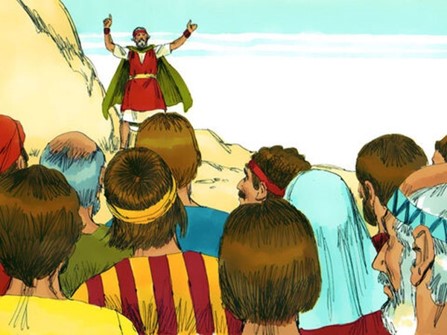
- Immediate Implementation of God’s Wisdom
Indeed, Moses’ action in response to Jethro’s counsel speaks volumes about his leadership and obedience. Moses was quick to implement Jethro’s advice. He identified able men among the Israelites and appointed them as leaders over thousands, hundreds, fifties, and tens. By doing so, he exemplified the truth found
in James 1:22, “ But don’t just listen to God’s word. You must do what it says. Otherwise, you are only fooling yourselves.”
The speed at which Moses put this plan into action highlights two essential characteristics of effective leadership and discipleship – discernment and immediacy. Discernment, because Moses recognized the wisdom in Jethro’s words and saw the benefit it would bring to the people. Immediacy, because he didn’t procrastinate or delay. He saw the need, understood the solution, and acted.
Moreover, Moses’ immediate implementation also shows us the depth of his faith and trust in God. He was open and receptive to divine wisdom, no matter through which conduit it came, and he was quick to align his actions with that wisdom. This highlights a deep understanding that God’s wisdom is active and life-changing. It’s not merely to be acknowledged, but lived.
This echoes the sentiment expressed in the book of Proverbs, which is filled with exhortations to not just acquire wisdom but to live it out. Proverbs 3:1-2 says, “My son, do not forget my teaching, but let your heart keep my commandments, for length of days and years of life and peace they will add to you.” Here Solomon, known as the wisest man, encourages the active application of wisdom – an encouragement that Moses wholeheartedly lived out.
Moses’ immediate application of wisdom sets an example for us today. We too are called to act on the wisdom God provides, whether it comes through His Word, prayer, or the wise counsel of others. We are called not only to be hearers of wisdom but also doers of it. We ought to apply God’s wisdom to our daily lives immediately and wholeheartedly.
This immediacy is especially relevant in today’s world, where distractions are abundant, and it’s easy to delay action. Moses’ example calls us to resist complacency and to act swiftly when we discern God’s wisdom. It’s a call to be proactive participants in God’s work, just like Moses was.
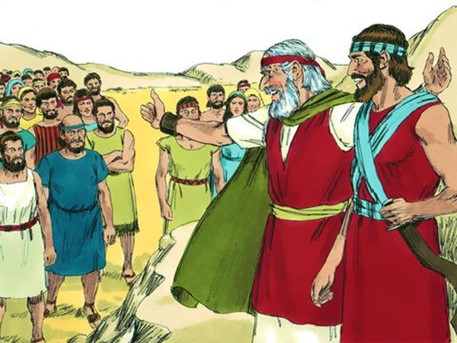
Conclusion
As we conclude our journey through Exodus 18:13-27, let’s take a moment to appreciate the limitless wisdom of our God – a wisdom that’s practical, actionable, and transformative. We’re reminded that God’s wisdom not only surpasses all human understanding but also brings clarity and direction amidst the noise and confusion of our fast-paced world. It’s the wisdom that each of us, like Moses, needs to navigate through our intricate lives.
Our roles in our families, workplaces, churches, or communities often require us to make complex decisions that impact many. Like Moses, we are tasked to lead, and in these roles, our human wisdom falls short. We are called to seek God’s divine wisdom, which considers not only our current situation but the eternal implications of our decisions.
As we seek this wisdom, let’s imitate Moses’ humility and readiness to receive, remembering that pride is a barrier to wisdom, while humility is the pathway. Everyone we meet can potentially be a conduit of God’s wisdom. Let’s remain open and teachable, ready to implement God’s wisdom, just as Moses did without delay.
Finally, let’s come together to praise our God for His boundless wisdom, guidance through life’s complexities, and His gracious involvement in our lives. We express our gratitude for His faithful provision of wisdom and His patience with us. As we continue our walk with God, may we be humble receptors and swift implementers of His wisdom, so that our lives may honor Him and serve His people effectively.
To our God, the source of all wisdom, be all glory, honor, and praise, now and forevermore. Amen.
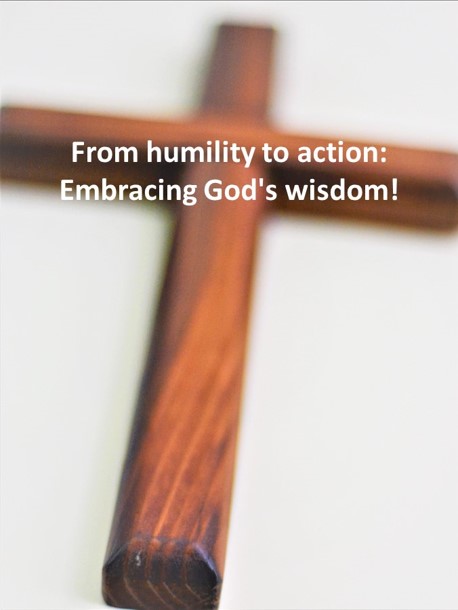
“If any of you lacks wisdom, you should ask God, who gives generously to all without finding fault, and it will be given to you.” – James 1:5
